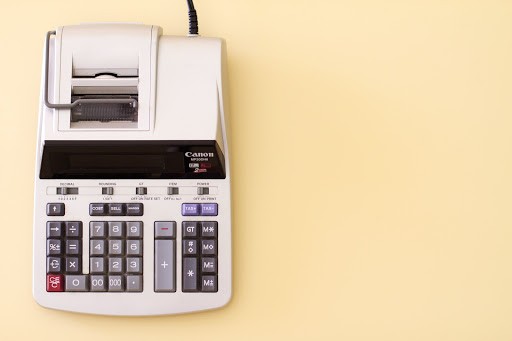
Simon Jenner
Monday 8 March 2021

You don’t need to be a big spender, here are 5 steps to start building your MVP successfully while saving money.
Posted in:
Startups
We’re about to bust a quick myth for you about building an MVP for your startup and launching your app…
It doesn’t have to cost a fortune.
While the market is incredibly inundated with entrepreneurs and Big Ideas at the moment, you don’t need to be a big spender to fit in. History holds many founders who started with a tight budget and invented brilliantly successful apps.
Here are 5 steps on how you can join those successful founders while building your app on a budget.
1. Establish Your Goals and Features Early On.
We get it - nailing down how much app development for your startup will cost can be a lot like running around in circles. It’s very hard to nail down a budget when you don’t know what features you will want to include while building an MVP for your startup or in your final app development. App development costs for startups are very similar to purchasing a car or building your dream home. There are an overwhelming amount of features and functions to choose from, and your final cost can easily range from underwhelming to overwhelming.
But there is some good news here: your goals and your budget will work together symbiotically as long as they have both been established and you adhere to them.
We suggest setting your budget first as this is likely the least flexible of your decisions. Once your budget is set, you can establish your goals and begin to piece together the features you want to include during your app development for your startup that will fit within this budget. For example, ask yourself what problem you are solving with your app, who your target audience is, and what features you’ll need to include to meet their needs.
2. Choose the No-Code Development Route.
“No-code startup MVP development” is essentially synonymous with “budget-friendly”. No-code eliminates your need to find an experienced coder or technical co-founder to build your startup's MVP or app and puts you in the driver’s seat.
There are a variety of no-code tools available that will both teach you how to use no-code and allow you to entirely develop your startup's app for minimal costs. On average, a traditionally developed MVP (Minimum Viable Product) will cost about $75,000 and will take around 18 weeks to take to market. However, with no-code, building an MVP for startups costs less than $10,000 and can go to market within mere weeks. If you’re on a budget, no-code is essentially a no-brainer.
3. Build Your Startup's MVP First.
As excited as you are to see your fully-functional app come to life, it is crucial that you build an MVP for your startup first. Your MVP app will be the bare minimum product necessary to test your Big Idea among target users in order to gather feedback. This won’t be anything fancy - in fact, the best MVP apps are a bit rough around the edges. Include strictly your most important features; leave the bells and whistles behind for now.
With your MVP app, you will be able to collect feedback about your product and pivot wherever necessary prior to spending the money to formally launch your final product. In the long run, you will have worked out all of the kinks beforehand, meaning you’ll save money on app updates and reiterations.
4. Select Features With User Needs In Mind.
Users don’t need the fanciest features from the get-go, but ensure you are at least including the necessary features relevant to your Big Idea to draw in your consumers. For example, an e-commerce app needs a payment gateway of sorts in order to complete the user journey and allow for conversions. While this function is typically expensive and may claim a significant portion of your budget, it is vital to your success.
5. Prioritise One Host Platform.
Considering development costs and maintenance costs, one extra area you can give your budget some relief is in choosing your hosting platforms. Are a majority of your target consumers using Android, iOS, or Google Play? While your long-term goals might include having your app available on each of these platforms, you can certainly save money early-on by choosing just one.
Further, while it is important to select the platform where your consumers are present, keep in mind that each platform is not monetised equally. The Apple App Store will charge you $99 annually to host your app, Google Play requires a one-time fee of $25, and Android’s hosting pricing varies.
App development for startups does not have to break the bank. You don’t have to relinquish control to an outside developer and you aren’t required to launch your app on every platform available. One of the most glorious things about building an MVP or full-fledged app is that it belongs to you, and you can build it under whatever budget you deem appropriate.
At the end of the day, the most significant area you can save money on building your app is the actual development costs. Our team at MLabs doesn’t want a single Big Idea to lie dormant simply because a founder’s budget couldn’t stretch far enough for traditional development - which is why we offer our No-Code Bootcamps. By joining the next cohort, you can learn how to become a no-code pro, build an MVP for your startup with pride, and get it to market in just weeks, all without stressing about your budget. The only thing you need to do to get started is to grab a spot.
It doesn’t have to cost a fortune.
While the market is incredibly inundated with entrepreneurs and Big Ideas at the moment, you don’t need to be a big spender to fit in. History holds many founders who started with a tight budget and invented brilliantly successful apps.
Here are 5 steps on how you can join those successful founders while building your app on a budget.
1. Establish Your Goals and Features Early On.
We get it - nailing down how much app development for your startup will cost can be a lot like running around in circles. It’s very hard to nail down a budget when you don’t know what features you will want to include while building an MVP for your startup or in your final app development. App development costs for startups are very similar to purchasing a car or building your dream home. There are an overwhelming amount of features and functions to choose from, and your final cost can easily range from underwhelming to overwhelming.
But there is some good news here: your goals and your budget will work together symbiotically as long as they have both been established and you adhere to them.
We suggest setting your budget first as this is likely the least flexible of your decisions. Once your budget is set, you can establish your goals and begin to piece together the features you want to include during your app development for your startup that will fit within this budget. For example, ask yourself what problem you are solving with your app, who your target audience is, and what features you’ll need to include to meet their needs.
2. Choose the No-Code Development Route.
“No-code startup MVP development” is essentially synonymous with “budget-friendly”. No-code eliminates your need to find an experienced coder or technical co-founder to build your startup's MVP or app and puts you in the driver’s seat.
There are a variety of no-code tools available that will both teach you how to use no-code and allow you to entirely develop your startup's app for minimal costs. On average, a traditionally developed MVP (Minimum Viable Product) will cost about $75,000 and will take around 18 weeks to take to market. However, with no-code, building an MVP for startups costs less than $10,000 and can go to market within mere weeks. If you’re on a budget, no-code is essentially a no-brainer.
3. Build Your Startup's MVP First.
As excited as you are to see your fully-functional app come to life, it is crucial that you build an MVP for your startup first. Your MVP app will be the bare minimum product necessary to test your Big Idea among target users in order to gather feedback. This won’t be anything fancy - in fact, the best MVP apps are a bit rough around the edges. Include strictly your most important features; leave the bells and whistles behind for now.
With your MVP app, you will be able to collect feedback about your product and pivot wherever necessary prior to spending the money to formally launch your final product. In the long run, you will have worked out all of the kinks beforehand, meaning you’ll save money on app updates and reiterations.
4. Select Features With User Needs In Mind.
Users don’t need the fanciest features from the get-go, but ensure you are at least including the necessary features relevant to your Big Idea to draw in your consumers. For example, an e-commerce app needs a payment gateway of sorts in order to complete the user journey and allow for conversions. While this function is typically expensive and may claim a significant portion of your budget, it is vital to your success.
5. Prioritise One Host Platform.
Considering development costs and maintenance costs, one extra area you can give your budget some relief is in choosing your hosting platforms. Are a majority of your target consumers using Android, iOS, or Google Play? While your long-term goals might include having your app available on each of these platforms, you can certainly save money early-on by choosing just one.
Further, while it is important to select the platform where your consumers are present, keep in mind that each platform is not monetised equally. The Apple App Store will charge you $99 annually to host your app, Google Play requires a one-time fee of $25, and Android’s hosting pricing varies.
App development for startups does not have to break the bank. You don’t have to relinquish control to an outside developer and you aren’t required to launch your app on every platform available. One of the most glorious things about building an MVP or full-fledged app is that it belongs to you, and you can build it under whatever budget you deem appropriate.
At the end of the day, the most significant area you can save money on building your app is the actual development costs. Our team at MLabs doesn’t want a single Big Idea to lie dormant simply because a founder’s budget couldn’t stretch far enough for traditional development - which is why we offer our No-Code Bootcamps. By joining the next cohort, you can learn how to become a no-code pro, build an MVP for your startup with pride, and get it to market in just weeks, all without stressing about your budget. The only thing you need to do to get started is to grab a spot.
Ready to launch your startup idea with an MVP?
Download our step by step guide for non-technical founders to create a startup Minimum Viable Product (MVP)
Get the eBook

